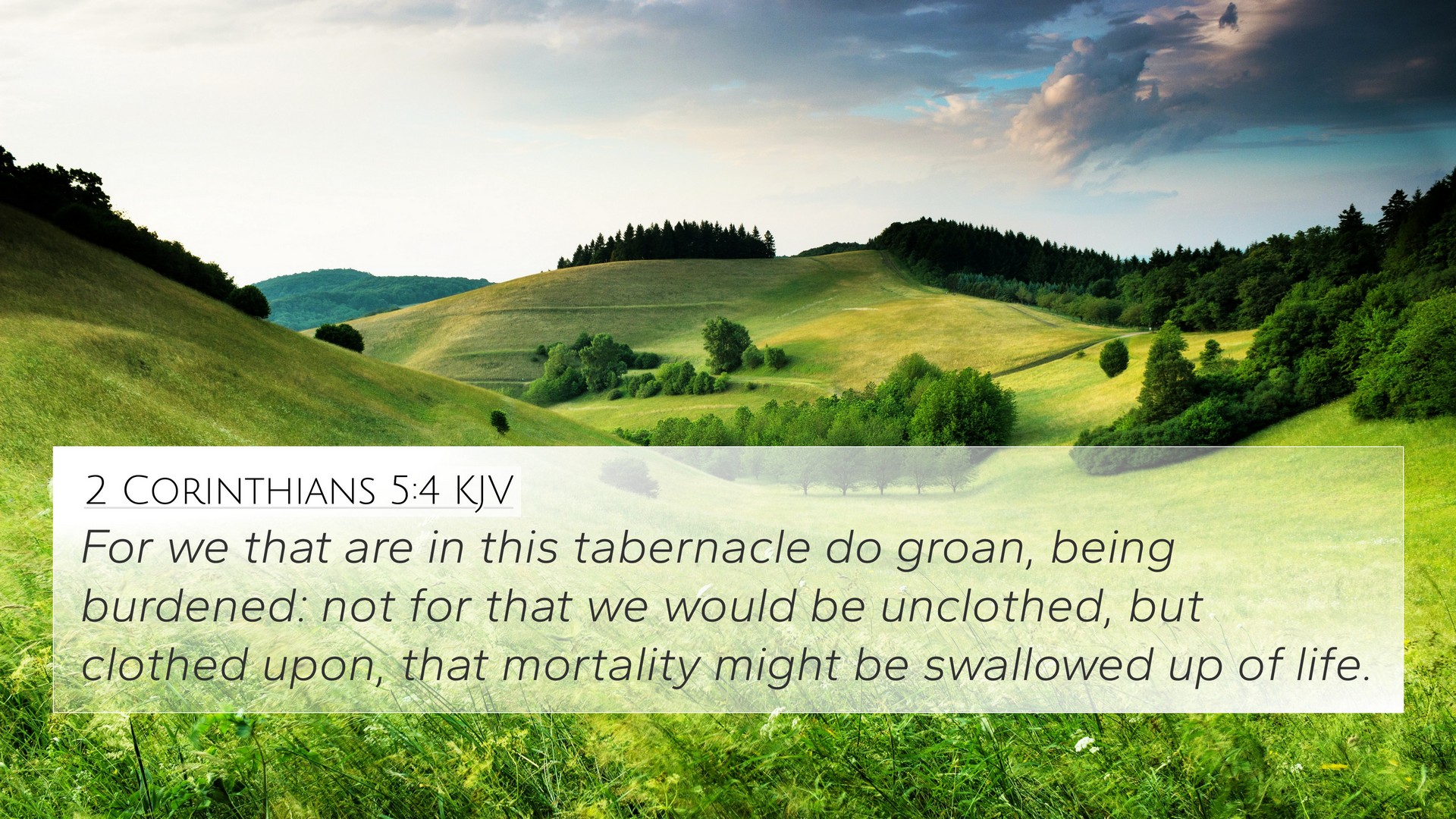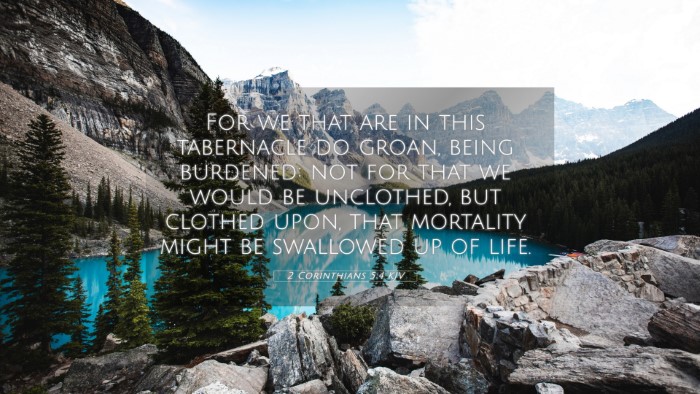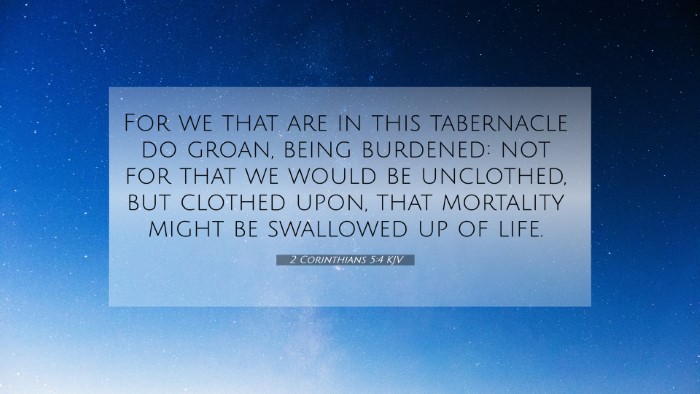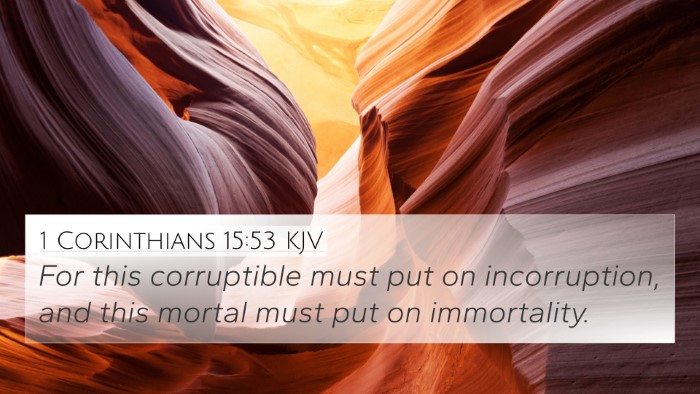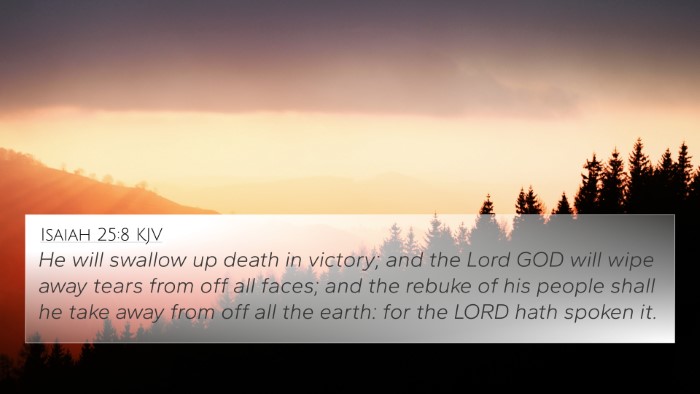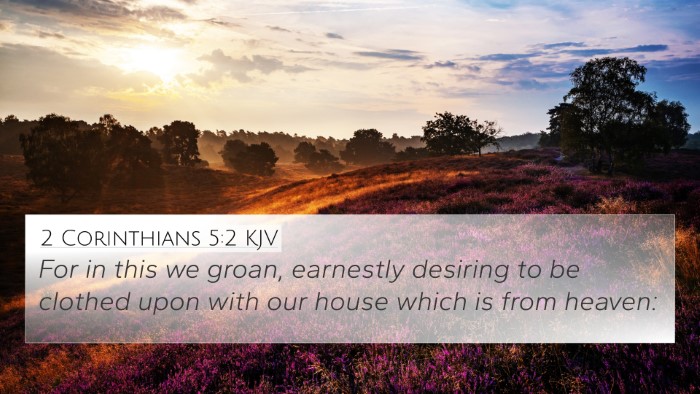Understanding 2 Corinthians 5:4
In 2 Corinthians 5:4, the Apostle Paul speaks to the nature of life, death, and hope in the resurrection. The verse states:
"For we that are in this tabernacle do groan, being burdened: not for that we would be unclothed, but clothed upon, that mortality might be swallowed up of life."
This passage draws significant attention to the idea that our earthly existence is compared to a temporary dwelling or "tabernacle."
Verse Meaning and Insights
The key elements of this verse can be broken down through insights from Matthew Henry, Albert Barnes, and Adam Clarke:
-
Earthly Body as a Tabernacle:
Matthew Henry interprets the "tabernacle" metaphorically, indicating that our physical bodies are temporary and subject to decay. He emphasizes the need for believers to focus on the eternal, heavenly body that God will provide.
-
Burden of Mortality:
Albert Barnes elaborates on the "groaning" experienced by believers in the physical realm. This is not merely a lament over earthly struggles, but a deep yearning for the completeness of life in Christ, free from suffering and death.
-
Hope of Resurrection:
Adam Clarke notes the contrast between being unclothed and being clothed upon. He explains that while believers may fear death, they should anticipate the glorious transformation that comes with resurrection—the "swallowing up" of mortality by eternal life.
Bible Cross References
This verse is interwoven with several other Biblical passages, enhancing its meaning through comparative study:
- 1 Corinthians 15:54-57: "So when this corruptible shall have put on incorruption, and this mortal shall have put on immortality..."
- Romans 8:18: "For I reckon that the sufferings of this present time are not worthy to be compared with the glory which shall be revealed in us."
- Philippians 3:21: "...who shall change our vile body, that it may be fashioned like unto his glorious body..."
- 2 Timothy 4:6-8: "For I am now ready to be offered, and the time of my departure is at hand..."
- Revelation 21:4: "And God shall wipe away all tears from their eyes; and there shall be no more death..."
- Job 19:26-27: "And though after my skin worms destroy this body, yet in my flesh shall I see God..."
- Hebrews 11:10: "For he looked for a city which hath foundations, whose builder and maker is God."
Thematic Bible Verse Connections
Through the lens of this verse and its connections, believers are encouraged to explore deeper themes within scripture, understanding how various verses relate to each other:
-
Comparison of Earthly and Heavenly Existence:
The struggle between our current state and the promise of eternal life echoes throughout the New Testament, calling believers to fix their eyes on the unseen (2 Corinthians 4:18).
-
Resurrection and Transformation:
Just as Paul emphasizes the "swallowing up" of mortality, Jesus’ resurrection serves as the divine assurance for believers about the transformative power of God (John 11:25-26).
-
Yearning for Redemption:
This expression of longing is also found in Romans 8:22-23, where creation itself groans for redemption, linking the believer's experience to the broader narrative of salvation and restoration by God.
Tools for Bible Cross-Referencing
For those seeking to delve deeper into scriptural connections and cross-referencing, several tools are available:
- Bible Concordance: A tool to locate specific verses and their contexts.
- Bible Cross-Reference Guide: Helps to navigate between related scriptures easily.
- Cross-reference Bible Study: Methods for exploring relationships between biblical texts.
- Bible Reference Resources: Collections of verses that thematically connect.
Identifying Cross-References
To find cross-references effectively in the Bible, consider the following methods:
- Using a Bible concordance or a digital Bible app with search functions.
- Reading in context – understanding verses in light of surrounding chapters.
- Engaging in thematic studies that track specific terms or concepts.
Conclusion
2 Corinthians 5:4 offers profound insights into the Christian outlook on life, death, and the hope of resurrection. By employing cross-referencing and thematic studies, believers can deepen their understanding of Scripture and how different verses elucidate the meaning of this passage. Through such exploration, the connections between Bible verses become evident, providing rich insights that bolster faith and understanding.
